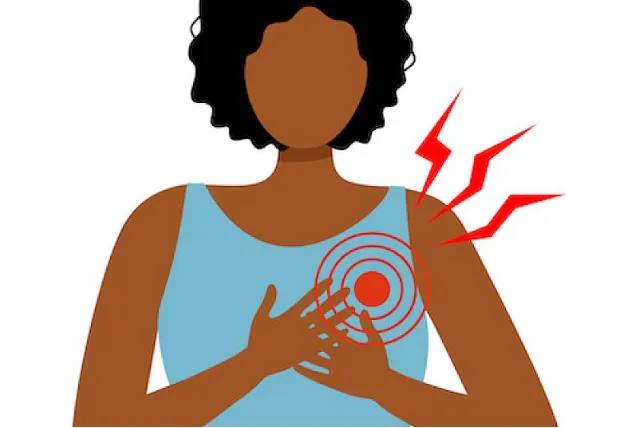Mastering Men's Health: Your Ultimate Blueprint for Well-Being

Men's health and well-being are often overlooked or underestimated in the hustle and bustle of everyday life. Yet, maintaining a balanced and healthy lifestyle is crucial to ensure long-term vitality, emotional well-being, and physical fitness. This comprehensive guide will help you navigate the maze of health choices and equip you with strategies for living a better, healthier life.
1. Physical Health: The Foundation of Wellness
To maintain good physical health, regular exercise is essential. Men, particularly as they age, need to focus on both cardiovascular fitness and strength training. Incorporating a combination of aerobic exercises (running, cycling, swimming) and resistance training (weightlifting, bodyweight exercises) into your routine can significantly improve heart health, bone density, and overall strength.
Additionally, a balanced diet that includes lean proteins, healthy fats, and plenty of fruits and vegetables is key. Avoiding processed foods and reducing sugar intake can help prevent chronic conditions like diabetes and heart disease.
2. Mental and Emotional Well-being
Mental health is just as important as physical health, yet many men hesitate to seek help when facing emotional or psychological issues. Depression, anxiety, and stress are common, but they are treatable. Maintaining a work-life balance, cultivating hobbies, staying connected with friends and family, and practicing mindfulness or meditation can help reduce stress and improve mental clarity.
For some, seeking therapy or counseling can provide valuable support. Don't hesitate to talk to a mental health professional if you feel overwhelmed or notice signs of mental health struggles.
3. Preventive Healthcare: Be Proactive
Men are often less likely to visit the doctor regularly compared to women. Regular health screenings and checkups are essential for early detection of potential health problems such as prostate cancer, hypertension, or high cholesterol. Men should have routine blood tests and physical exams to assess overall health.
In addition to routine checkups, ensuring that you're up to date on vaccinations and understanding your family’s medical history can help guide decisions about preventive care.
4. Quality Sleep: The Unsung Hero of Health
Sleep is an often overlooked component of health. Adults need between 7 to 9 hours of sleep per night for optimal performance. Poor sleep can negatively affect mood, cognitive function, and physical health. Creating a sleep-friendly environment, sticking to a consistent bedtime, and limiting screen time before bed are helpful strategies to improve sleep quality.
5. Men’s Sexual Health
Sexual health is an important but frequently neglected aspect of men’s overall well-being. Erectile dysfunction, low testosterone levels, and other sexual health concerns are common, particularly as men age. If these issues arise, it’s vital to address them with a healthcare provider to explore treatment options. Maintaining a healthy weight, managing stress, and avoiding smoking and excessive alcohol intake can all contribute to better sexual health.
6. Health Resources and Support
To help navigate the maze of health-related questions, the following websites provide reliable, science-backed information and services to enhance men's health:
1. [Healthline Men's Health](https://www.healthline.com/health/mens-health)
2. [WebMD Men's Health](https://www.webmd.com/men/guide/overview)
3. [Mayo Clinic Men's Health](https://www.mayoclinic.org/healthy-lifestyle/mens-health)
4. [American Heart Association - Men’s Health](https://www.heart.org/en/health-topics/mens-health)
5. [Men’s Health Network](https://www.menshealthnetwork.org/)
6. [National Institute on Aging](https://www.nia.nih.gov/health)
7. [The National Sleep Foundation](https://www.sleepfoundation.org/)
8. [American Urological Association](https://www.auanet.org/)
9. [Mental Health America](https://www.mhanational.org/)
10. [Everyday Health Men’s Health](https://www.everydayhealth.com/mens-health/)
By implementing these strategies and accessing these resources, men can take charge of their health and well-being, leading to a happier, more fulfilling life.
HTML Comparison Table:
<table style="border: 1px solid #ccc; border-collapse: collapse;">
<tr style="background-color: #f1f1f1;">
<th>Aspect</th>
<th>Physical Health</th>
<th>Mental Well-being</th>
<th>Sexual Health</th>
<th>Preventive Care</th>
</tr>
<tr>
<td>Exercise</td>
<td>Cardio, strength training, and flexibility exercises.</td>
<td>Yoga, meditation, and aerobic exercise to reduce stress.</td>
<td>Regular exercise to improve circulation and stamina.</td>
<td>Annual check-ups and screenings for early detection.</td>
</tr>
<tr>
<td>Diet</td>
<td>Balanced diet with lean protein, veggies, and whole grains.</td>
<td>Good nutrition supports mental health. Avoid processed foods.</td>
<td>A healthy diet aids in maintaining hormone levels and sexual health.</td>
<td>Healthy eating habits prevent chronic diseases.</td>
</tr>
<tr>
<td>Sleep</td>
<td>7-9 hours of quality sleep for recovery and performance.</td>
<td>Good sleep supports mental clarity and emotional well-being.</td>
<td>Sleep is crucial for testosterone levels and sexual performance.</td>
<td>Sleep helps in preventing long-term health conditions.</td>
</tr>
<tr>
<td>Healthcare</td>
<td>Regular physical checkups for monitoring heart and muscle health.</td>
<td>Counseling or therapy for emotional support.</td>
<td>Consultation for erectile dysfunction and other sexual health issues.</td>
<td>Routine screenings for cancer, cholesterol, and blood pressure.</td>
</tr>
</table>






